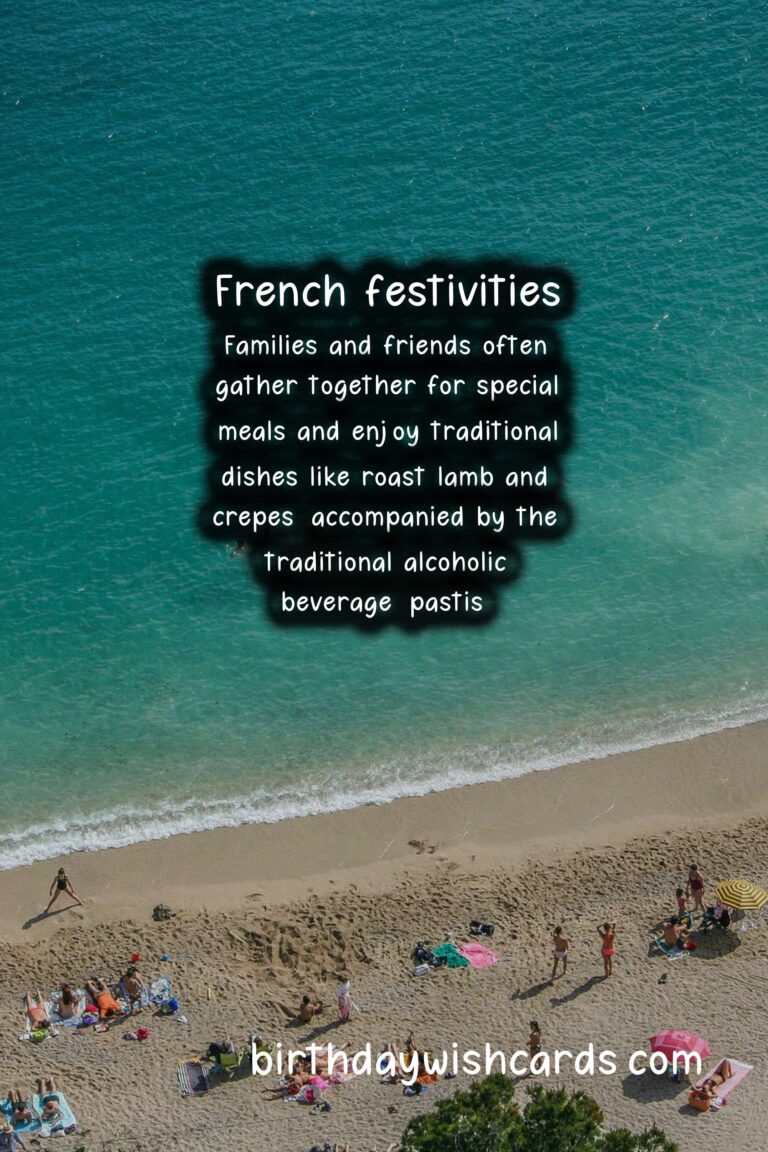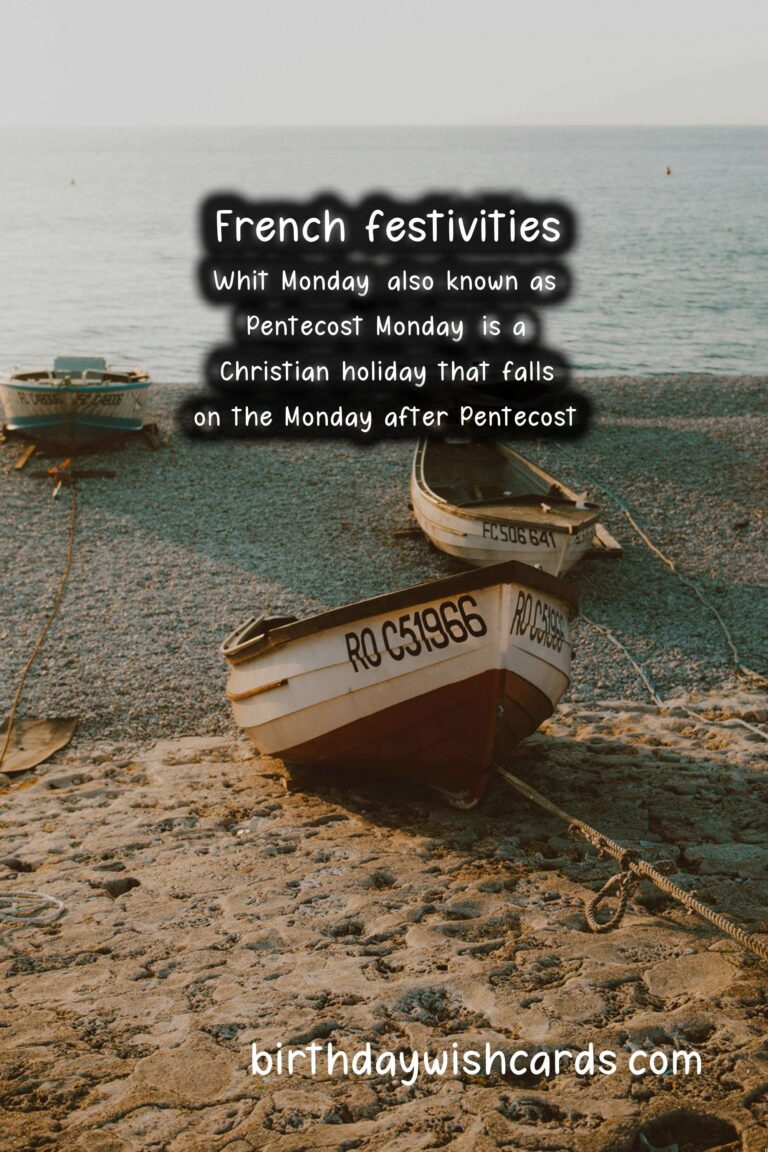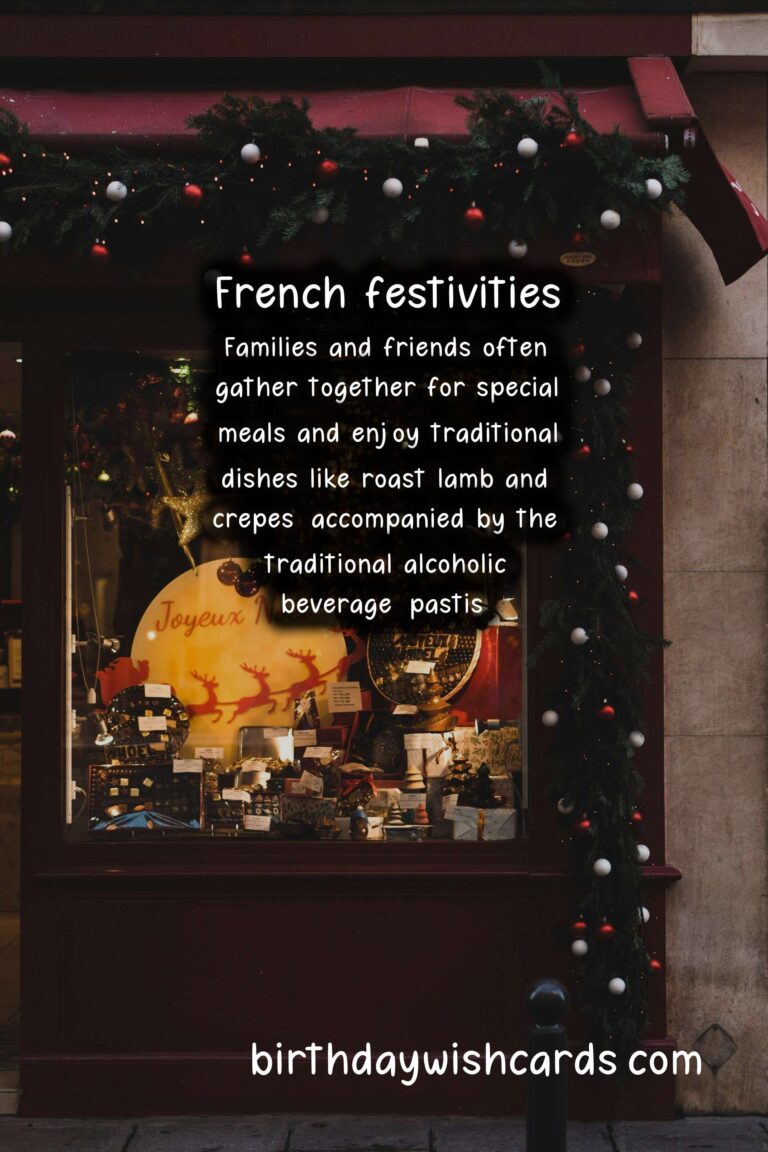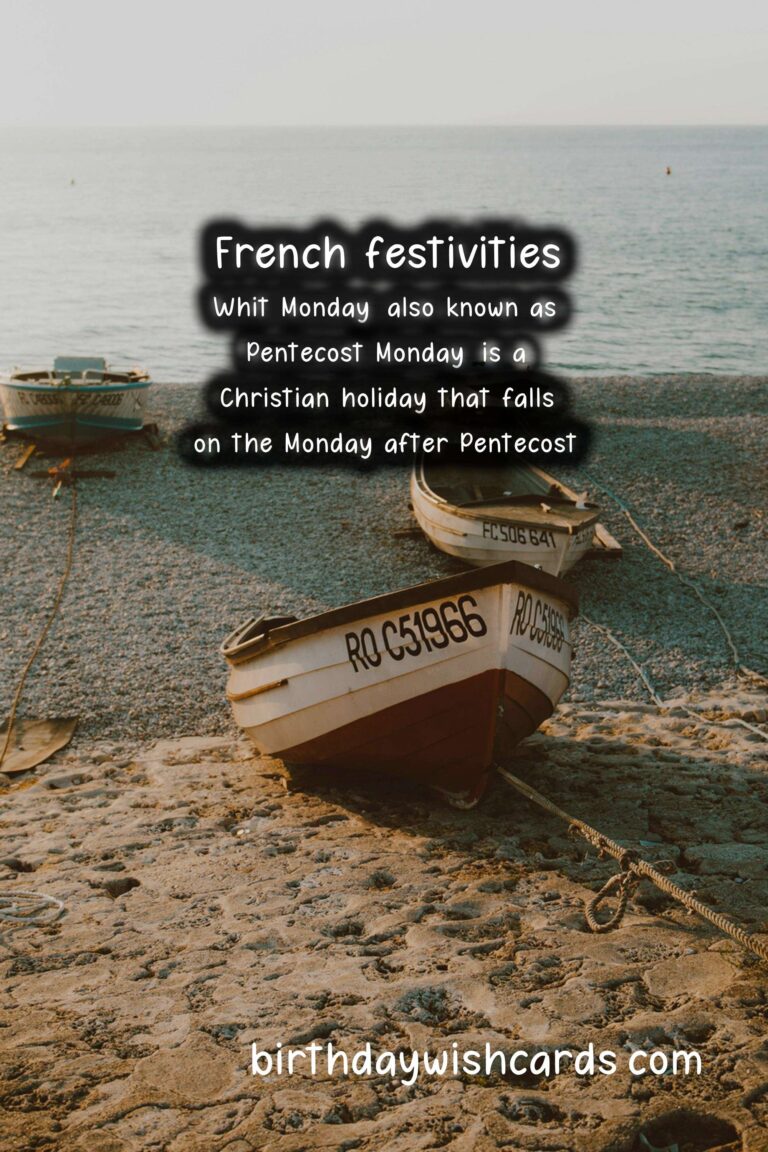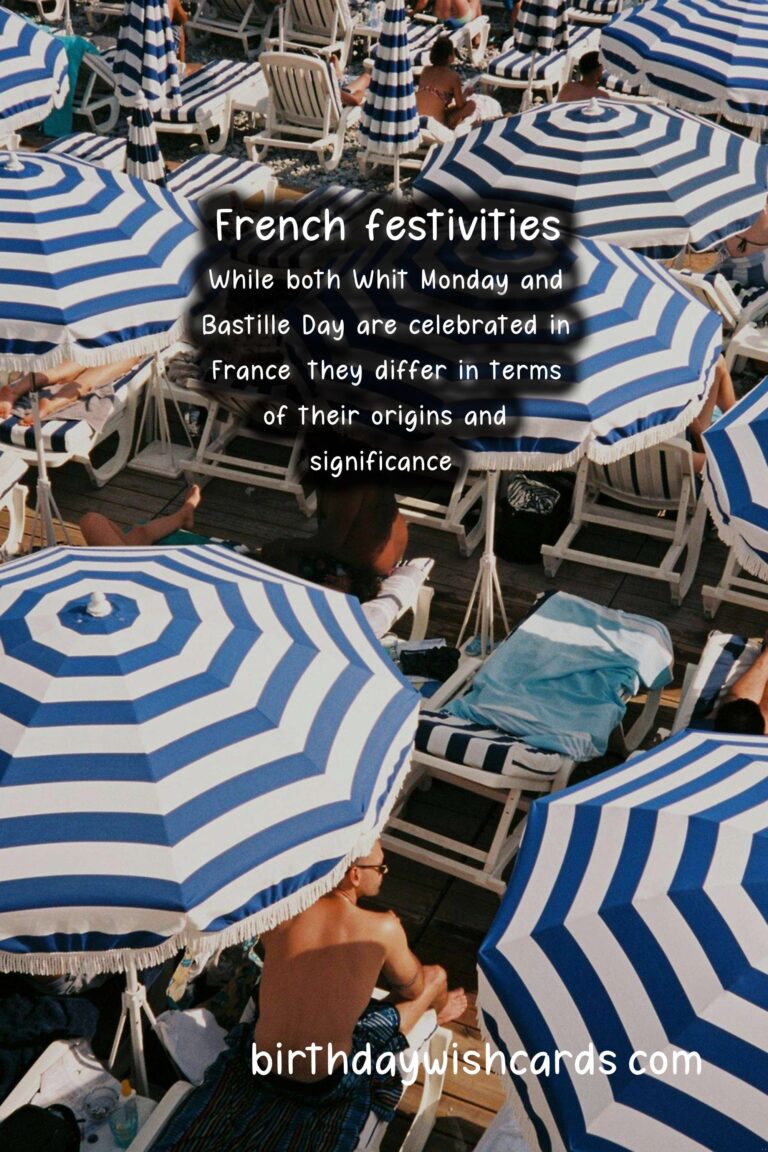
When it comes to celebrations, France has some of the most iconic and historic days of the year. Every July 14, the country celebrates Bastille Day with parades, fireworks and festive gatherings, but what about Whit Monday? Also known as Pentecost Monday, it is another important holiday in France, although it may not receive as much international recognition. Both of these days are crucial to French culture and history, so let’s take a closer look at why they are celebrated and how they differ.
Whit Monday
Whit Monday, also known as Pentecost Monday, is a Christian holiday that falls on the Monday after Pentecost. This day commemorates the descent of the Holy Spirit upon the disciples of Jesus, as described in the Bible. It is a public holiday in France and many other countries, and is also known by different names such as White Monday, Whitsun, and Whitsuntide.
In France, Whit Monday is not just a religious holiday, but also a day for celebrations and traditions. In some areas, there are processions with floral and green decorations representing the Holy Spirit, while in others there are fairs and markets. Families and friends often gather together for special meals and enjoy traditional dishes like roast lamb and crepes, accompanied by the traditional alcoholic beverage, pastis. Parades and musical performances are also held in some cities, making it a day full of joy and festivities.
Bastille Day
July 14 marks the French National Day, also known as Bastille Day, and is perhaps the most famous holiday in the country. This day commemorates the storming of the Bastille prison in 1789, a key event during the French Revolution. The storming of the Bastille was a turning point in the French Revolution and represents the country’s fight for democracy and freedom.
On this day, the French celebrate with parades, fireworks, and other festivities that showcase the country’s rich culture and history. A military parade takes place on the famous Champs-Elysees, in the presence of the President and other political figures. The streets of Paris are filled with people dressed in the colors of the French flag, and patriotic songs can be heard throughout the city. Families and friends gather to enjoy a traditional meal, which often includes a famous French delicacy, the quiche Lorraine. The evening ends with a spectacular firework show that illuminates the Eiffel Tower, adding to the already stunning atmosphere in Paris.
What makes these holidays different?
While both Whit Monday and Bastille Day are celebrated in France, they differ in terms of their origins and significance. Whit Monday is a Christian holiday that has been celebrated in France since the Middle Ages, while Bastille Day is a symbol of the country’s fight for democracy and freedom.
Another difference is that Whit Monday is primarily a religious holiday with some cultural celebrations, while Bastille Day is a purely cultural and national holiday. On Whit Monday, most people spend the day with family and engage in traditional activities, while Bastille Day is often celebrated with friends and large events. However, one thing that both these days have in common is that they are important to the French people and are celebrations of their history, culture, and values.
Whit Monday, also known as Pentecost Monday, is a Christian holiday that falls on the Monday after Pentecost. This day commemorates the descent of the Holy Spirit upon the disciples of Jesus, as described in the Bible. It is a public holiday in France and many other countries, and is also known by different names such as White Monday, Whitsun, and Whitsuntide. In France, Whit Monday is not just a religious holiday, but also a day for celebrations and traditions. In some areas, there are processions with floral and green decorations representing the Holy Spirit, while in others there are fairs and markets. Families and friends often gather together for special meals and enjoy traditional dishes like roast lamb and crepes, accompanied by the traditional alcoholic beverage, pastis. Parades and musical performances are also held in some cities, making it a day full of joy and festivities. July 14 marks the French National Day, also known as Bastille Day, and is perhaps the most famous holiday in the country. This day commemorates the storming of the Bastille prison in 1789, a key event during the French Revolution. The storming of the Bastille was a turning point in the French Revolution and represents the country’s fight for democracy and freedom. On this day, the French celebrate with parades, fireworks, and other festivities that showcase the country’s rich culture and history. A military parade takes place on the famous Champs-Elysees, in the presence of the President and other political figures. The streets of Paris are filled with people dressed in the colors of the French flag, and patriotic songs can be heard throughout the city. Families and friends gather to enjoy a traditional meal, which often includes a famous French delicacy, the quiche Lorraine. The evening ends with a spectacular firework show that illuminates the Eiffel Tower, adding to the already stunning atmosphere in Paris. While both Whit Monday and Bastille Day are celebrated in France, they differ in terms of their origins and significance. Whit Monday is a Christian holiday that has been celebrated in France since the Middle Ages, while Bastille Day is a symbol of the country’s fight for democracy and freedom. Another difference is that Whit Monday is primarily a religious holiday with some cultural celebrations, while Bastille Day is a purely cultural and national holiday. On Whit Monday, most people spend the day with family and engage in traditional activities, while Bastille Day is often celebrated with friends and large events. However, one thing that both these days have in common is that they are important to the French people and are celebrations of their history, culture, and values. 
